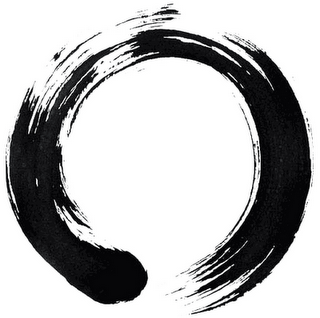“We are indeed much more than what we eat, but what we eat can nevertheless help us to be much more than what we are.” –Adelle Davis
As I mentioned before in my blog post about needing less money, I recently decided to offer barter advertising through Tiny Buddha—meaning I plan to promote products and services I support in exchange for things I need.
This week I started my first barter arrangement with L.O.V.E. Delivery, a company here in Los Angeles that delivers organic produce right to your door.
Before my first shipment arrived two days ago, I actually found myself anticipating its arrival with giddy enthusiasm, like a kid on Christmas.
It was kind of exciting to know I’d be getting a more diverse assortment of produce than I’d purchase in the store; and it would all be naturally produced, fresh, and personally packaged by someone who loves the work he does.
I also appreciated that receiving this food created a sense of mealtime mindfulness that started with the delivery, extended to the preparation, and then culminated with a sense of hyper-awareness while eating. It’s instinctive to savor food when you feel a sense of respect and even awe for it.
I haven’t always felt that way. As a teen and in my early 20s, food was my enemy. I felt happiest when I felt in control of it—meaning I ate a minimal amount of it.
Even after I adopted a healthier attitude toward food, it remained a rival of sorts. All too often, I hurried through the grocery store, piled the cheapest and easiest-to-prepare items in my cart, and then rushed through the acts of cooking and eating, like items to be checked off my to-do list.
Anyone who has traveled internationally knows that many other cultures enjoy the experience of preparing and eating meals far more than most of us do in the United States.
Now with a microwave in nearly every home, we’re more apt to eat something quickly and conveniently–and often alone–while tweeting, emailing, or watching TV, than we are to sit down with friends or family over a leisurely dinner.
A friend of mine once said he was waiting for food pellets to come out so that he didn’t have to waste any time eating. But what, exactly, is wasteful about slowing down, taking care of your body, and connecting with other people?
How centered and happy can we be if we feel so harried, we’re willing to outsource something that can be one of life’s greatest pleasures? And I’m not just talking about the satisfaction we feel when we indulge in comfort foods. I’m talking about enjoying the complete experience.
Ironically, there’s some research that shows people who enjoy food more tend to eat less because they feel satisfied enough to stop when they’re full.
So the question seems to be: How can we make the act of eating more satisfying? I recommend:
1. Simplify the “What I should be eating” equation.
In his eye-opening book In Defense of Food, Michael Pollan suggests we should all, “Eat food. Not too much. Mostly plants.” He defines food as items our great grandmothers would recognize—meaning whole foods, with five ingredients or less. He also suggests it’s a smart idea to “shake the hand that feeds you.” If you have access to a farmer’s market or organic delivery service, that’s ideal.
I’ve decided to see this as an exercise to overcome my perfectionism. It doesn’t need to be black-and-white; you don’t need to always eat perfectly or stress about the nutrients you might not be getting (and then buy processed foods that claim to have those nutrients in spades). If you’re eating a high percentage of healthy, whole foods, you’re doing just fine.
2. Think moderation.
It’s natural to want foods that taste good. After all, that’s a big part of what makes eating pleasurable. But if you indulge or overindulge at every meal, you may end up feeling guilty or out of control, and you’ll definitely feel unhealthy and sluggish.
Decide that you can have the things you enjoy, but in moderation. For me, this means dipping my fork in dressing instead of dumping it all over my salad, and having a bite or two of dessert instead of devouring a massive piece of cake. Then once a week, have that heavier dish you crave. When you’re not denying yourself, but you’re conscious of what’s good for your body, it’s easier to enjoy.
3. Spice it up.
I’m not necessarily referring to spices here; I’m more talking about the spice of life: variety! As a creature of habit, I know it can be tempting to buy the same things, eat the same things, and maybe even eat them sitting in the same spot, thinking the same things.
But just like we get a rush from new experiences, we can enjoy food on a whole new level when we approach it with a sense of curiosity and even adventure. If you have the funds, this might mean trying a new cuisine at a restaurant once a week, but you can just as easily branch out with cooking at home.
4. Make meal preparation inclusive.
It will naturally be less tempting to take your time cooking if you see it as one more thing you have to do before you get to decompress from your long day.
If you have a family, get them involved in preparing. Or invite your friends over to cook together. My boyfriend does most of the cooking, but I usually chop everything and then stay in the kitchen chatting while he finishes up. In this way, it’s something we enjoy together—not something keeping us apart.
5. Schedule leisurely meals throughout your week.
You may not be able to devote two hours to preparing and eating dinner every night, but if you decide that it’s important to you, you can certainly do it on some. Most of us can do a great deal of things with the time we have if we’re willing to shift our priorities.
Schedule in a few meals where the meal itself is the event—there is nothing to rush to, and your sole objective is to enjoy cooking and then make eating a social experience. If you plan to do this once or twice a week, you may find you enjoy it enough to prioritize more often.
6. Address your mindless eating habits.
Do you rush because you feel like you have a lot to do? Practice taking more bites than usual. (I personally wouldn’t count because that feels way too calculated, but that’s your call!)
Do you overeat to avoid feelings? Make it a point to ask yourself: What’s going on in my head and my heart? And then: What can I do to address this before I sit down to eat?
7. Make every meal mindful.
Even if you don’t have a ton of time to cook and eat, make it a point to immerse yourself in the experience. Tune in to the smells and the sounds outside your window, and be fully present. When you’re eating, take deep breaths between each bite, and think about your food like a gourmet, analyzing and appreciating the different flavors and textures.
Someone once told me that food is just fuel, and we’d solve a lot of our health problems if we stopped depending on it to be anything else. I disagree with the first part. Food is not just fuel.
We are not merely gas tanks waiting to be filled. We are vibrant, passionate, pleasure-seeking people, and there’s nothing wrong with that if we take our pleasure from healthy sources.
Food is literally energy, and what—besides food—gives us a greater sense of renewed energy than connecting with people we love while practicing mindfulness and taking care of our bodies?
Food doesn’t need to be a way to stuff down emotions, but if we take the time to appreciate it, alone and together, it can be a vehicle to many of the positive emotions we’re often too busy to enjoy.

